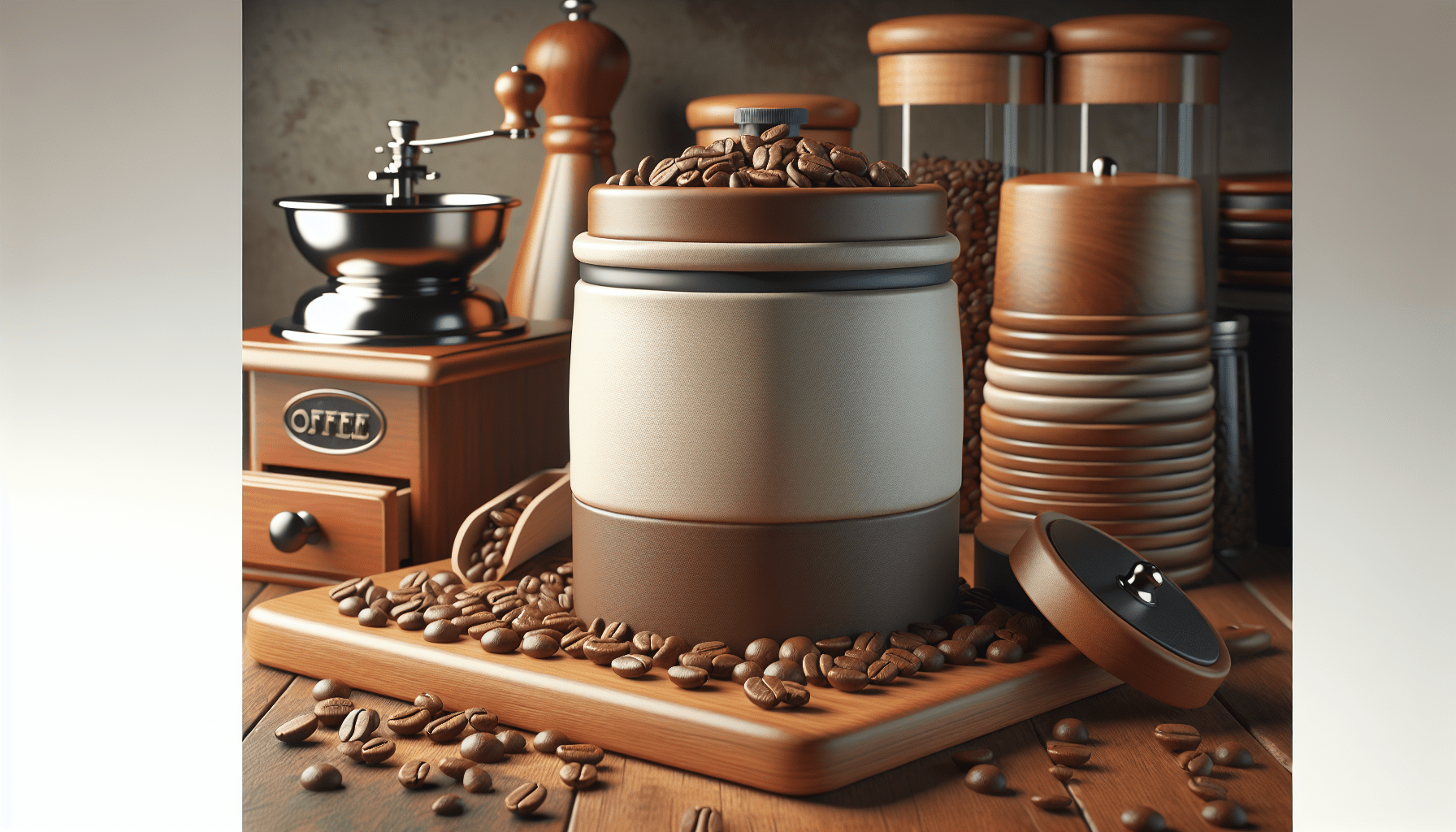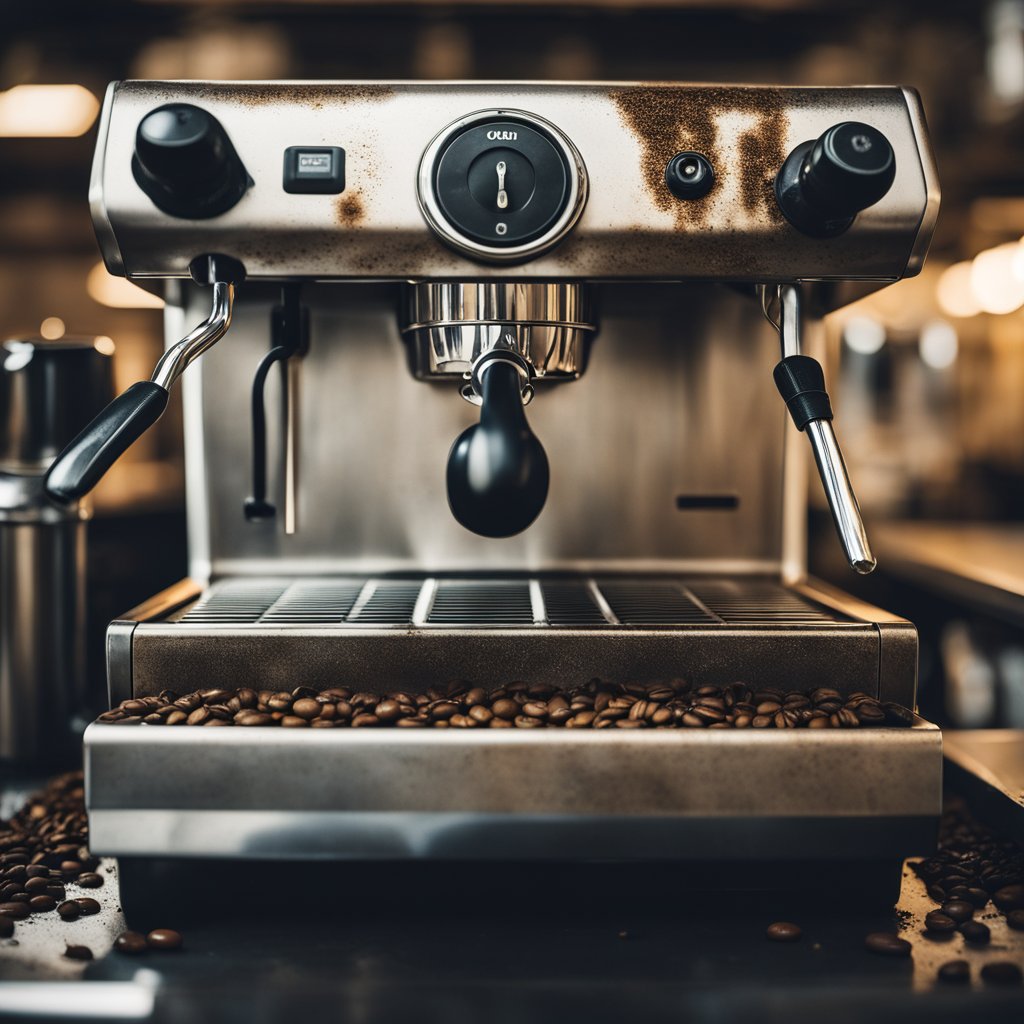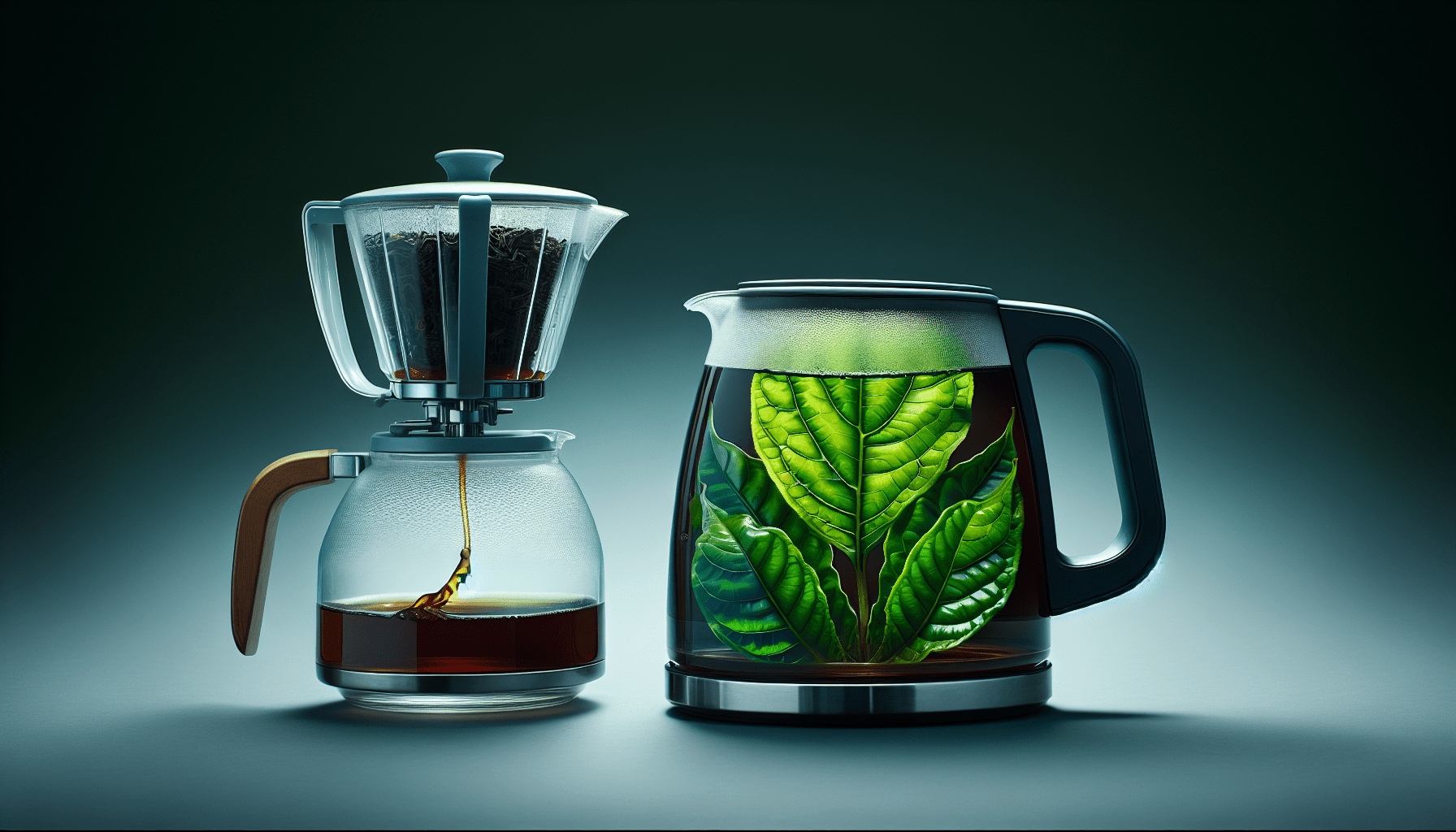You love starting your day with a freshly brewed cup of coffee, but have you ever wondered what the best way to store those precious coffee beans is? In this article, we’ll explore the various methods of storing coffee beans to ensure maximum freshness, flavor, and aroma. Whether you’re a casual coffee drinker or a true connoisseur, read on to discover the secrets to preserving the quality of your favorite beans.
Temperature
Keep coffee beans away from heat
When it comes to storing coffee beans, temperature plays a crucial role in maintaining their freshness and flavor. One important rule to follow is to keep your coffee beans away from heat. Heat can accelerate the oxidation process of the beans, causing them to lose their natural flavors and aromas. It’s important to store your coffee beans in a cool and dry place to ensure their longevity. Avoid placing them near any heat sources, such as ovens, stovetops, or even direct sunlight.
Store at room temperature
Another important aspect of temperature control is to store your coffee beans at room temperature. The ideal temperature range for storing coffee beans is between 60°F and 70°F (15°C and 21°C). Extreme temperatures, both hot and cold, can negatively impact the quality of your beans. Therefore, it’s best to avoid storing coffee beans in the refrigerator or freezer as this can lead to moisture buildup and potential flavor contamination.
Avoid placing near direct sunlight
In addition to keeping your coffee beans away from heat, it’s equally important to protect them from direct sunlight. The ultraviolet (UV) rays from the sun can degrade the quality of the coffee beans, leading to a loss of flavor and aroma. To preserve the optimal taste of your coffee, store the beans in a dark place or consider using opaque containers. This will help shield them from any unnecessary exposure to light.
Air Exposure
Keep coffee beans in an airtight container
Air exposure is one of the biggest enemies of coffee beans. When beans are exposed to air, they can quickly degrade and become stale. To prevent this from happening, it’s essential to store your coffee beans in an airtight container. This will help preserve their freshness by limiting their exposure to oxygen. Airtight containers can be found in various forms, such as jars with rubber seals, resealable bags, or specially designed coffee storage containers.
Avoid using vacuum-sealed containers
While it may seem logical to use vacuum-sealed containers for coffee bean storage, it is generally not recommended. The reason is that coffee beans release small amounts of carbon dioxide gas after being roasted. If the beans are stored in a vacuum-sealed container, the gas cannot escape, and it can cause the container to expand or even rupture. Therefore, it’s best to opt for airtight containers that allow for the release of carbon dioxide.
Use coffee-specific storage containers
To take your coffee bean storage to the next level, consider investing in coffee-specific storage containers. These containers are designed with features that cater to the unique needs of coffee beans. They often come with one-way valves that allow carbon dioxide to escape while preventing air from entering. This helps maintain the freshness of the beans for a longer period. Coffee-specific storage containers can be found in various sizes and materials, allowing you to choose the one that suits your needs best.
Humidity
Protect coffee beans from moisture
Humidity is another factor that can greatly affect the quality and shelf life of coffee beans. It’s crucial to protect your beans from moisture as excessive exposure can lead to mold growth, loss of flavor, and an unpleasant taste in your brew. To safeguard your beans, ensure they are stored in a dry environment with low humidity levels.
Avoid storing in the refrigerator or freezer
While it may seem like a good idea to store your coffee beans in the refrigerator or freezer to prolong their freshness, it’s generally not recommended. The fluctuating temperatures in these environments can cause condensation, which can lead to moisture buildup on the beans. Additionally, the beans can also absorb odors from other foods in the refrigerator or freezer, affecting the taste of your coffee. It’s best to stick to storing your beans at room temperature to maintain their quality.
Use moisture-absorbing packets if necessary
If you live in a particularly humid climate or struggle with excessive moisture in your storage area, you may consider using moisture-absorbing packets. These packets, often containing silica gel, help to absorb excess moisture in the surrounding environment, keeping your coffee beans dry and fresh. Be sure to choose packets that are food-safe and suitable for coffee storage. Place them near your beans or in the storage container to help maintain optimal humidity levels.
Light
Store coffee beans in a dark place
Just like heat and humidity, exposure to light can have a detrimental effect on the quality and flavor of your coffee beans. Sunlight and artificial light can cause oxidation, leading to a loss of aroma and flavor compounds in the beans. To prevent this, it’s best to store your coffee beans in a dark place. A pantry or cupboard away from direct light sources is an ideal storage location.
Prevent exposure to artificial light
When considering the storage of coffee beans, it’s important to not only focus on sunlight but also on artificial light sources. Coffee beans can be affected by the UV rays and heat emitting from household light bulbs or fluorescent lighting. It’s a good practice to keep your coffee beans away from any light sources, ensuring they remain in a dark environment until you’re ready to grind and brew them.
Consider using opaque containers
To further protect your coffee beans from light exposure, consider using opaque containers. These containers are specifically designed to block out light, helping to preserve the integrity and freshness of your beans. Opaque storage jars, tins, or bags are readily available on the market and can make a significant difference in maintaining the quality of your coffee.
Roasted vs. Unroasted Beans
Roasted beans have a shorter shelf life
When it comes to the shelf life of coffee beans, whether they are roasted or unroasted plays a significant role. Roasted coffee beans undergo a chemical transformation during the roasting process, which leads to the release of natural oils and flavors. However, these oils can also be susceptible to oxidation, resulting in a shorter shelf life for roasted beans. It’s recommended to consume roasted beans within a few weeks of their roast date for optimal flavor and freshness.
Unroasted beans can be stored longer
In contrast, unroasted, or green, coffee beans have a longer shelf life compared to their roasted counterparts. Green beans can be stored for several months and still maintain their freshness, although flavor degradation may occur over time. If you choose to store unroasted beans, make sure they are kept in a cool, dry place and protected from light and moisture to prolong their shelf life.
Consider buying whole bean and grinding as needed
To maximize the freshness and flavor of your coffee, consider buying whole bean coffee and grinding it as needed. Whole bean coffee has a longer shelf life compared to pre-ground coffee. By grinding the beans just before brewing, you can ensure that you’re extracting the freshest flavors from the beans. This approach allows you to have more control over the grind size and guarantees a more flavorful and aromatic cup of coffee.
Ground Coffee
Ground coffee has a shorter shelf life
Once coffee beans are ground, their exposure to air increases exponentially, causing them to lose their freshness at a much faster rate. Ground coffee has a significantly shorter shelf life compared to whole bean coffee. The increased surface area allows for faster oxidation, which leads to staleness and a decline in flavor. For the best-tasting coffee, it’s recommended to use freshly ground beans whenever possible.
Store in airtight containers away from light
When storing ground coffee, it’s crucial to minimize exposure to air and light to preserve its flavor and aroma. Keep your ground coffee in an airtight container, ensuring there are no gaps or air pockets. This will help seal in the freshness and protect the coffee from oxidation. Additionally, store the container in a dark place to protect it from any potential light exposure that can degrade its quality.
Consider using smaller portions for freshness
To further ensure the freshness of your ground coffee, consider using smaller portions. By dividing your ground coffee into smaller quantities, you can minimize the frequency of air exposure. This practice helps to maintain the optimal flavor of the coffee for a more extended period. Utilizing a smaller airtight container for daily portions can be a convenient way to keep your coffee fresh and ready for brewing.
Frequency of Use
Buy coffee beans in small quantities
When it comes to maximizing the freshness and flavor of your coffee, buying coffee beans in small quantities is key. It’s advisable to purchase an amount that you can consume within a few weeks to ensure that your coffee is always at its best. By avoiding large stockpiles of coffee beans, you can enjoy the full range of flavors that freshly roasted beans have to offer.
Consume within a few weeks for optimal freshness
As mentioned previously, consuming your coffee beans within a few weeks of the roast date is crucial for optimal freshness. Coffee beans are at their peak flavor and aroma during this period. Over time, they begin to lose their natural characteristics and become stale. To fully appreciate the subtle nuances and complexity of your coffee, it’s best to aim for regular consumption and avoid storing coffee beans for an extended period.
Consider purchasing from local coffee shops
To ensure that you always have access to freshly roasted coffee beans, consider purchasing from local coffee shops. Local coffee shops often roast their beans in smaller batches, allowing for a shorter time between roasting and customer purchase. This means that you have a higher chance of obtaining beans that are in their prime and haven’t been sitting on a shelf for an extended period. Additionally, supporting local businesses can have a positive impact on your community.
Storage Time
Coffee beans are best within a week of roasting
While coffee beans can generally be stored for a few weeks before noticeable flavor degradation occurs, they are undeniably at their peak within the first week of roasting. During this time, the beans exhibit a vibrant flavor profile, complex aromas, and a fresh taste that truly showcases the quality of the coffee. For an unparalleled coffee experience, try to consume your beans within this optimum time frame.
Avoid storing for extended periods
Although coffee beans can be stored for several weeks without becoming completely unusable, it’s best to avoid storing them for extended periods. Over time, the flavor and aroma compounds within the beans gradually break down, resulting in a decline in quality. While the beans may still be suitable for brewing, the nuances and characteristics that make a great cup of coffee may no longer be as pronounced.
Keep track of the roast date
To ensure that you are always using your coffee beans at their freshest, it’s essential to keep track of the roast date. Most specialty coffee roasters provide this information on the packaging or on their website. By purchasing beans with a recent roast date, you can guarantee that your coffee will have the best possible flavor and aroma. Make it a habit to check and note down the roast date, allowing you to plan your coffee consumption accordingly.
Storage Location
Choose a cool and dry place
When it comes to storing coffee beans, the location is just as important as the container. It’s crucial to choose a storage location that is cool and dry to preserve the freshness of the beans. Avoid areas with high humidity or fluctuating temperatures, as these conditions can lead to moisture buildup and spoilage. A cool pantry or cupboard away from heat sources is an ideal spot for storing your coffee beans.
Avoid storing near strong odors
Coffee beans have a remarkable ability to absorb odors from their surroundings. This can result in a flavored taste in your brew that is not desirable. To prevent your coffee beans from picking up unwanted odors, avoid storing them near strong-smelling substances such as spices, cleaning supplies, or pungent foods. Keeping your coffee beans in a dedicated coffee cupboard or pantry can help maintain their purity and protect them from any potential odor contamination.
Consider a dedicated coffee cupboard or pantry
If you’re a serious coffee enthusiast or have a substantial collection of coffee beans, consider dedicating a specific cupboard or pantry solely for your coffee storage needs. This ensures that your beans are kept in a controlled environment away from external factors such as heat, light, moisture, and strong odors. By having a designated space for your coffee, you can create an organized and optimal storage solution.
Experiment and Personal Preference
Try different storage methods
While there are general guidelines for storing coffee beans, it’s important to remember that coffee storage can also be a matter of personal preference. What works best for one person may not work as effectively for another. So don’t be afraid to try out different storage methods and techniques to find what suits your taste and lifestyle. Experimentation can be a fun and rewarding process that allows you to tailor your coffee storage to your specific needs.
Explore various containers and environments
In addition to experimenting with storage methods, explore different containers and environments for your coffee beans. Whether it’s airtight jars, vacuum-sealed bags, or specialty coffee storage containers, each option has its advantages and may produce slightly different results in terms of flavor and freshness. Also, consider the different storage locations in your home, such as a kitchen cabinet, pantry, or dedicated coffee nook. By exploring these possibilities, you can refine your coffee storage system to your liking.
Determine the optimal storage approach for your taste
Ultimately, the best way to store coffee beans is the one that aligns with your personal taste preferences. The storage method that best preserves the freshness, flavor, and aroma of your coffee beans will depend on various factors, including your local climate, the type of coffee beans you’re using, and your desired brewing method. With some experimentation and attention to detail, you’ll be able to determine the optimal storage approach that consistently delivers a satisfying and enjoyable cup of coffee.




